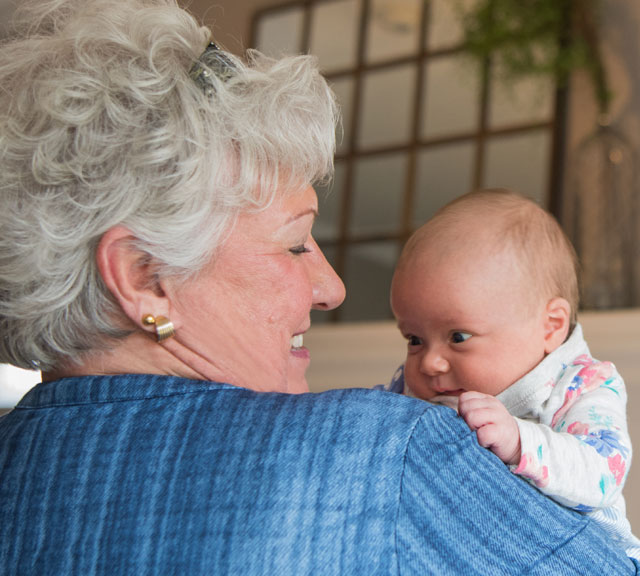When Golden Years Feel Blue: Depression and Aging

Find Your Perfect Match
Answer a few questions and we'll provide you with a list of primary care providers that best fit your needs.
Your retirement years can be your chance to do the things you truly love. Whether that’s gardening or spending time with your grandchildren, there can be great joy in living out your golden years to the fullest. But what if you find that you are losing interest in the things that you once enjoyed? What if basic functions like eating, sleeping or just making it through your day start to feel like “too much”?
Contrary to what you might think, depression is not just a symptom of getting older. It is a serious condition that can, and should, be treated. A recent study suggests that untreated depression may increase the risk of dementia in older adults.
“Old age ain’t no place for sissies."
Watch for These Depression Symptoms
In the later years, depression may go undiagnosed because sadness is not the primary symptom. It’s tempting to explain away these common symptoms in older adults as signs of aging. If they extend for weeks at a time, they are a signal that it’s time to look for help for depression.
- Prolonged periods of sadness. Older adults may be facing grief from the passing of loved ones. Learn the differences between grief and depression. Remember, if grief continues for a long time, it’s wise to seek help from a medical professional.
- Loss of pleasure in everyday activities. People with depression often find no joy in the things that once gave them pleasure, such as hobbies or getting out and seeing friends. Someone who is depressed may have little or no desire to eat, have sex or do everyday tasks such as cooking or bathing.
- Poor sleep quality. For all ages, depression can keep the sandman away. You may have trouble falling asleep or staying asleep. Or you may sleep for much longer than usual. There is a strong link between the quality of your sleep and mental health.
- Extreme feelings of worthlessness or guilt. Depression may cause your older adult to concentrate on failures or losses. Persistent negative self-talk, such as “I am worthless,” can take over their inner thought life.
- Rapid weight change. With depression, some people may stop eating. Others may start using food as a way to cope. Neither is healthy and can lead to extreme weight loss or gain.
- Lack of energy. Fatigue is a common symptom of this condition. It may stem from a lack of quality sleep that often comes with depression.
- Difficulty concentrating or making decisions. Even simple tasks like reading the newspaper can be harder for a person who feels depressed. They may be overwhelmed by the need to make decisions, whether they are small or large.
- Frequent thoughts of death or suicide, or an attempt of suicide. Statistically, older adults are more likely to die by suicide than other age groups. For people aged 75 and older the number of deaths by suicide is higher than the national average for the general population.
- Physical aches and pains. Instead of talking about their emotions or sadness, older people may instead complain about physical pain, such as a headache or an upset stomach. This may make their depression hard to diagnose.
Who Is at Risk to Develop Depression?
“Old age ain’t no place for sissies,” a famous line from legendary film actress Bette Davis, sums up the daunting challenges that may raise the risk of depression:
- Declining health, disability, or chronic pain
- Loss of senses, such as failing eyesight or hearing loss
- Repeated falls
- Sleep disruption
- Mental impairment or dementia
- Side effects of medicines
- Abuse of alcohol or prescribed drugs
- Previous struggles with depression, or a family history of the disease
- Extended mourning after the death of a loved one
- Stressful life events such as illness, retirement or job loss
Common Ways to Treat Depression
- Medications. Antidepressants, mood stabilizers and/or antipsychotic medicines can help to manage depression.
- Psychotherapy. Talking with a therapist can be helpful to avoid or manage issues in life that may bring on feelings of depression. Some older adults prefer counseling or psychotherapy to adding more drugs to their already crowded pill dispenser. Still, medication may be best answer to truly manage symptoms. Talk to your doctor to find the right treatment plan.
- Brain stimulation therapy. Electroconvulsive therapy (ECT), a method to stimulate areas of the brain, may be used for severe depression that does not respond to standard treatments.
Other healing approaches can also be a valuable part of your treatment plan:
- Exercise. Being more active can improve your energy, mood and overall health.
- Alternative paths. Acupuncture or even better nutrition may help defeat depressed thoughts.
- Mind/body/spirit focuses. For some, meditation, faith and/or prayer can help fight depression.
If you think you or a loved one may be suffering from depression, be sure to check in with your health care provider to make a treatment plan. While depression can’t be cured, you can manage it to lift its cloud from your golden years.
Find Your Perfect Match
Answer a few questions and we'll provide you with a list of primary care providers that best fit your needs.
Source: Mental Health America; National Alliance on Mental Illness; National Institute of Mental Health



.tmb-card-head.webp?sfvrsn=680c0961_8)
